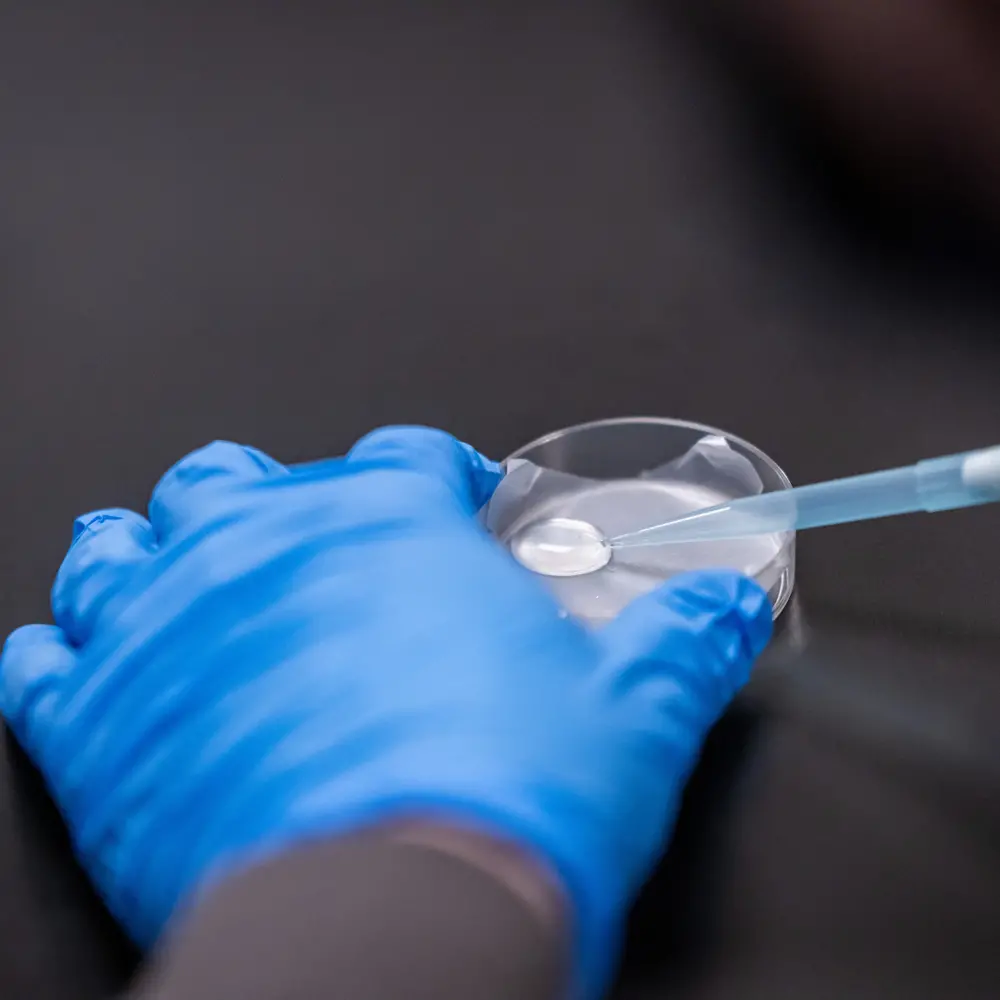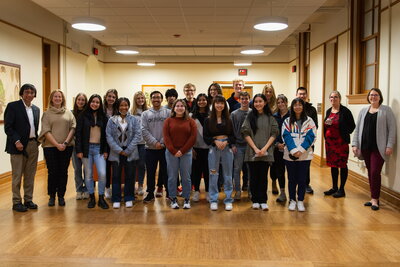
Carole and Alan Stivers have a lot to thank the University of Illinois Urbana-Champaign for:
It’s the place where Carole (PhD, ‘81, biochemistry) honed her skills in the lab before launching a successful career in medical diagnostics in Silicon Valley.
It’s the place that enabled Alan (MS, ‘75; PhD, ‘79, physics) to find his path after graduation, working at Intel Corp. in research and development.
And it’s the place where the couple first met on a blind date set up through an on-campus computer dating experiment.
The Stivers recognize how fortunate they are to have had access to higher education and the opportunities it has afforded them both professionally and personally. That’s why they’re determined to give back. Recently they established the Drs. Carole and Alan Stivers BEST Scholarship Endowment Fund to support outstanding undergraduates in the School of Molecular & Cell Biology.

“Personally, I couldn’t have gone to college if I hadn’t gotten a full scholarship, an anonymous donation from someone who wanted to support women in chemistry,” Carole says of her undergraduate studies at a small liberal arts college in Ohio. “Later, as a chemistry teaching assistant at the U of I, I had a bright young freshman student from Chicago who had to leave school to take care of his ailing mother. I think of him often, wondering if he’d ever been able to return and complete his undergraduate studies.”
Alan, who grew up in California, attended the University of California, Berkeley tuition-free for his undergraduate studies. He received enough financial support as a graduate student that his entire public education from childhood through his graduate studies was essentially free.
“Everything is cause and effect in science and engineering,” he says. “The cause of my ability to improve semiconductor technology that is used worldwide was my education. Education is the cause and technology development is the effect. There is a big payback. Education is an investment with a high payback.”
With their own memories firmly in mind, Carole and Alan decided to pay it back by paying it forward. They began by setting up the Drs. Alan and Carole Stivers College of Liberal Arts & Sciences Scholarship Fund for students pursuing degrees in biology or chemistry at the U of I. Established in Fall 2019, the endowment has now supported three recipients.
But the Stivers weren’t ready to call it a day.
During a visit to campus to meet the first LAS Scholarship Fund recipient, the Stivers also spoke with Milan Bagchi, Deborah Paul Endowed Professor and director of the School of Molecular & Cellular Biology.
“We loved his drive toward helping incoming students in the school via the BEST Scholars Program, both with monetary support and mentoring,” Carole recalls. “We decided that this could be yet another focus for our charitable giving."
The result was the Drs. Carole and Alan Stivers BEST Scholarship Endowment Fund.
The Biology, Experience, Scholarship, and Training (BEST) Program was established by the School of MCB and School of Integrative Biology to attract exceptionally talented students to the programs. BEST recipients receive scholarships and mentorships from Dr. Bagchi, the School of Integrative Biology Director Dr. Carla Cáceres, and several academic advisors.

“I’m filled with immense pride when I attend BEST Scholars meetings and see not only our advisors guiding new students, but also returning members of the program,” Bagchi says. “We are privileged and grateful to the Stivers for ensuring more students will have the chance to become part of this supportive community for years to come.”
“There’s a value placed on mentoring and teaching that I think is super, super important for students,” Carole says. “Whether or not a student goes on to a career in the sciences, a solid grounding in the sciences seems more and more essential in our technological age. Rapidly evolving artificial intelligence, invasive cyber-capabilities proliferated by big tech and governments alike, and runaway climate change are all the result of human endeavor, yet all of them threaten to overwhelm us humans. Global pandemics challenge our intelligence and compassion. We all need to be ethical, thoughtful, and knowledgeable when it comes to dealing with the issues of science that impact our everyday lives.”
Alan concurs.
“We see here in Silicon Valley that technology is advancing at an ever-increasing rate,” he says. “There are many jobs and a lot of opportunities to make a difference.”
Carole’s own career trajectory is proof that a STEM-focused education can make a difference in all sorts of professions.
After a 30-year career in medical diagnostics, Carole embarked on a second career as a fiction writer.
“Though my writing for many years was limited to technical articles, grant proposals, standard operating procedures and the like, I always wondered if I could write something creative that someone else might want to read,” she says. “My only ‘platform’ was that I was a scientist, and I’d always enjoyed reading speculative fiction. So, I decided to try my hand at science fiction.”
Stivers published her first novel, The Mother Code, in 2020.
The novel chronicles U.S. scientists’ attempts to ensure human survival on an inhospitable Earth through artificial intelligence. Carole says she drew upon the strengths she’d developed as a scientist and consultant, including the ability to break down technical details for the average reader.
“I had this kind of ‘stick-to-it-iveness' that I developed over the years, to just keep trying, because if one experiment doesn’t work, try another,” she recalls. “And that’s true of writing as well, for sure.”
If science is all about cause and effect, the Stivers hope their invaluable life experiences, coupled with their financial support, can set up more students for success.
“My overall advice to students would be to try and work on interdisciplinary projects, both in school and in your job,” Carole says. “Allow yourself to move and work outside your comfort zone. Listen to and integrate the knowledge and opinions of people outside your own narrow field. That’s where the magic happens!”